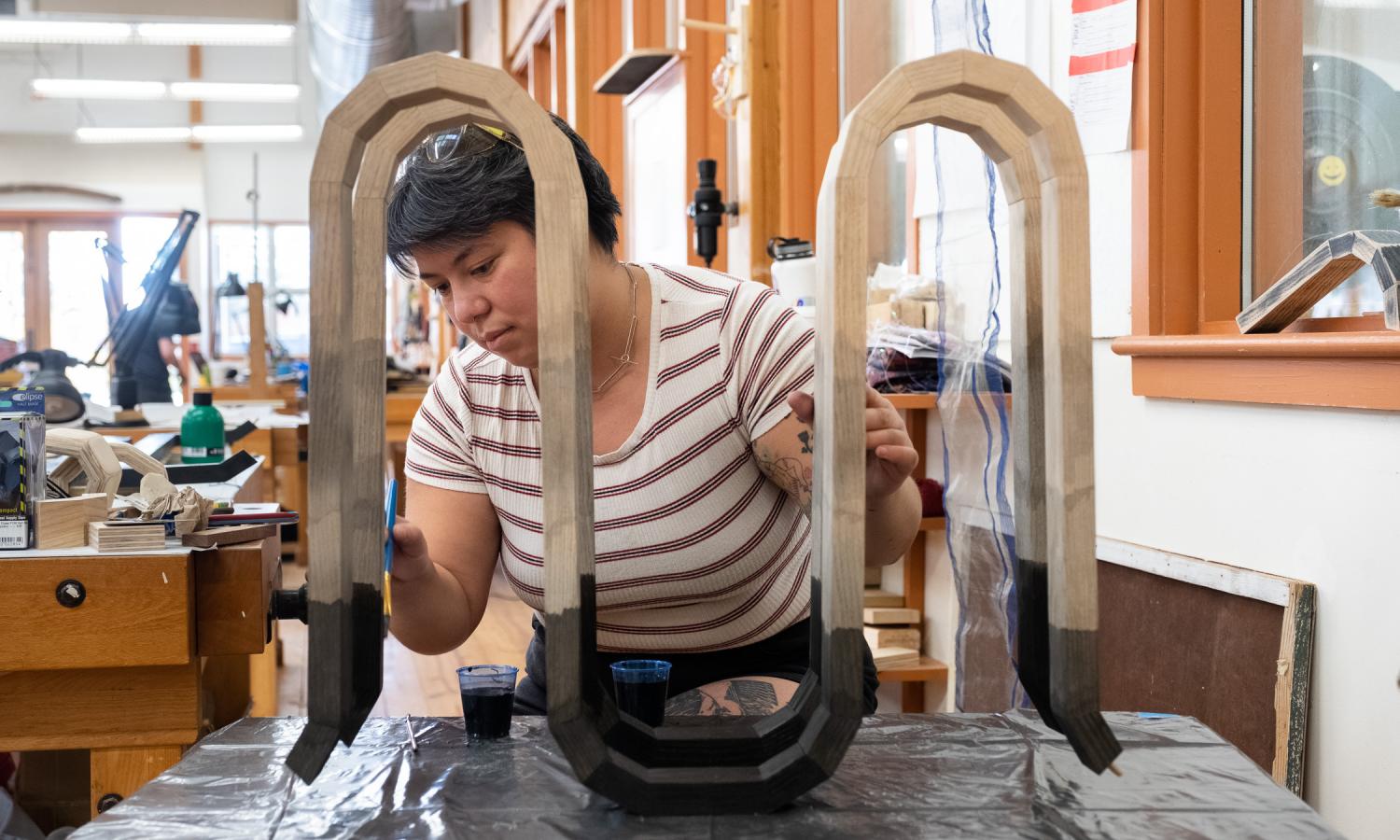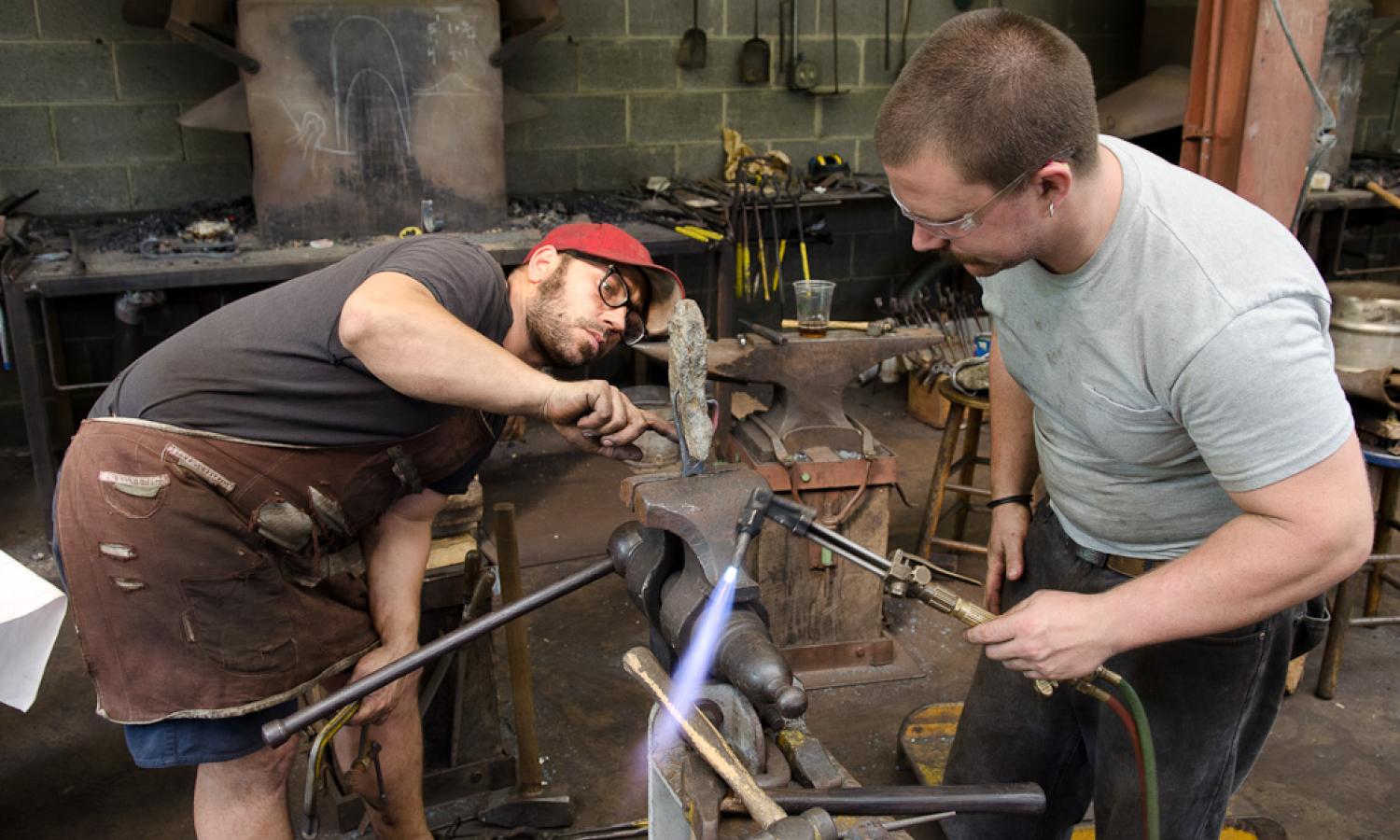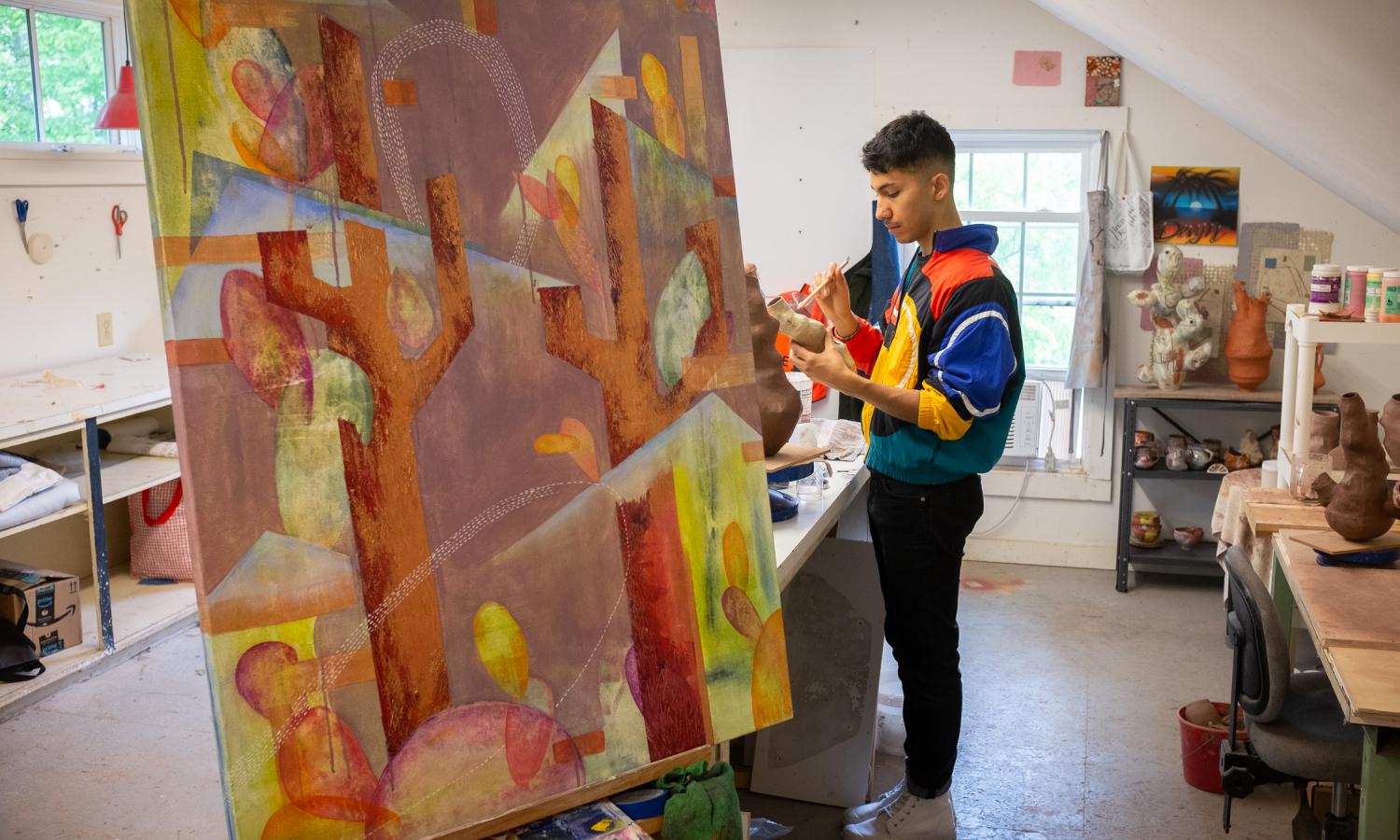Penland Core Fellowship Program
The Penland Core Fellowship Program is a two-year work-study fellowship for early career artists looking to expand technical skills and material fluency while working to support the day-to-day operations of a craft school. Artists of all backgrounds who want to advance their educational goals and explore their capacity to contribute to a thriving creative community are encouraged to apply. The goal of the program is to shape the future of contemporary craft by creating opportunity, connection, and immersive education for early career artists who bring a range of perspectives and goals to the school.
Penland core fellows fully engage with Penland by taking several workshops each year in familiar or new media, and performing integral jobs for the school. Penland’s ever-changing learning environment allows core fellows to study with world-class teaching artists from all over the US and abroad; this is a unique opportunity to create an educational path that responds to individual goals. The program can serve as preparation for careers in creative, non-profit, educational, and entrepreneurial sectors. A measure of the program’s success is the number of core fellows who have gone on to make a life in craft. To date over 200 people have participated in the program, and about 80% are practicing artists or professional contributors to the field of craft today.
The work that core fellows do for the school—jobs such as weekend cook, and entertainment coordinator—places them at the heart of Penland’s daily operations and gives them an opportunity to develop leadership skills and connect with artists from all over by working cooperatively towards a common goal. Core fellows are often a bridge between the staff and the studios and serve a unique role in helping others have a meaningful experience at Penland.
Core fellows live and work together and often learn as much from each other as they do from their instructors and mentors. In the process, they have a chance to form close friendships and often become part of each other’s lifelong creative and professional networks.
PO Box 37
Penland, NC 28765
United States
Residency Program Information
Residency Program Summary
Application Information
Applications are reviewed by a national panel of curators, educators, and other arts professionals as well as Penland staff. Panelists rotate each year to bring a range of new perspectives to the application process, and creating a diverse group of fellows is one of the stated goals of selection.
Specifically, applications will be reviewed with the following goals in mind:
- Program Goals
We believe the Core Fellowship Program can shape the future of contemporary craft by providing access to artists who can benefit from what this program has to offer—especially artists who have historically been underrepresented at the school and within the field of craft. - Collaboration and Group Dynamic
Core fellows share a house and are involved in collaborative tasks and decision-making along with the normal complexities of group living. They also work and take classes with a constantly changing community of instructors and students. We are looking for participants who can thrive as part of a group and community but also know when and how to step away and recharge as needed. Our goal is to bring together a diverse group of artists with a range of experience, perspectives, strengths, and goals. It is also important that the interests of each core group span a range of media taught at Penland. - Relevant Experience
Core fellows are asked to do many different kinds of work, ranging from basic physical labor to supervisory tasks. They must be adaptive to changing tasks and situations and committed to working cooperatively and confidently, sometimes with minimal direction or supervision. Penland staff will review each candidate’s application, CV, and reference to evaluate relevant experience (employment, internships, or volunteer work) and specific skills and accomplishments (what kind of work you have done, what contributions you have made, the consistency of your commitments, practical and/or supervisory experience). In addition to work experience, life experience and self-motivation are assets for this program. - Artwork
We are looking for work that shows a strong foundation and enough direction to tell us that the candidate will be able to take advantage of what this unique program offers. The review panel will score each portfolio in the following areas: proficient and/or intentional execution; clear/unique point of view; inquisitiveness and versatility; their interest in the work and its potential for growth. Candidates must be interested in working with materials and processes that are at the heart of our immersive workshops.
Accessibility
The Penland campus is located on uneven, hilly terrain that poses accessibility challenges. The following studios are wheelchair accessible: books, clay, drawing and painting, glass, iron, letterpress and printmaking, lower metals, photography, papermaking, and wood. The upper metals studio and both textiles studios have stairs that limit access; both are made partially accessible by stair lifts that will lift a person but not a wheelchair or other mobility aids.
Housing that meets ADA standards is available in Arbor House and in some units in The Roost, Dorm 54, Radcliffe, and the Sleeping Cabins. Accessible parking is found at the dining hall and at all studios. Several golf carts are available for use on campus.
While we do our best to accommodate all students, we know that our campus is not accessible for everyone. We are happy to talk with you about what our campus can or cannot do in this regard. Please contact our registrar to discuss in more depth how we can help you come to Penland: 828-765-2359, ext. 1306 or registrar@penland.org. And please know that improved access is part of our long-range campus planning.
We are working on adding more detailed accessibility information to this page. Please check back.



